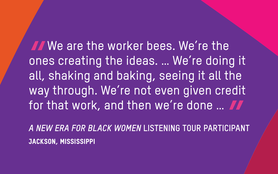Making the transition from an international to a national NGO can benefit local and national organizations—but only if that’s a top priority.
I come from a beautiful country—Colombia—whose rivers, rainforests, mountains, paramos, plains, and coastlines inspire awe, whose natural diversity nourishes the world, and whose people are famously welcoming and generous, hard-working and celebratory.
And I am indignant.
Indignant because war ravaged my country for decades and left relentless violent power struggles in its wake. Because machista culture is ruining the lives of women. Because of the heavy toll that the climate crisis is taking on our people and ecosystems. And because of the punishing injustices of inequality.
For the last four years, I have been the executive director of Oxfam Colombia. My indignation has powered my work, as well as my conviction that what is needed for the well-being of my people is not a series of gentle tweaks and reforms but rather wholesale transformation.
The forces arrayed against that transformation—greedy corporations, corrupt and reactionary politicians, narcotraffickers, and more—are entrenched and extremely powerful, so to take them on, we need all hands on deck. We need progressives to create alliances that are resilient—unbreakable, even—so we can advance our agenda together. In other words, we need solidarity. For us at Oxfam, that begins with the Colombian organizations we partner with in our projects.
I have submitted my resignation, as I feel this is the right moment for new leadership. But before I leave, I wanted to share my thoughts on how, when an INGO establishes a nationally based NGO, it can support rather than undermine local leadership and, hand in hand with partners, build the solidarity we need to win the fights ahead.
Listen well, and act on what you hear
It was four years ago that Oxfam in Colombia made a transition from being one of Oxfam’s many satellite offices to being a more independent Colombian organization with its own board of directors. The shift was part of an ongoing effort on the part of Oxfam to elevate voices of the Global South within our decision-making spaces, which were long dominated by representatives of wealthy northern countries.
But when international organizations recast themselves as national organizations, they can do a lot of harm. With big names and access to funding and expertise from all over the world, they can impress donors and scoop up opportunities for funding, representation, and visibility that more local groups deserve and depend on.
Not surprisingly, when word got out that Oxfam in Colombia was planning to make this transition, there was worry and consternation among local and national NGOs, so our first priority was to listen. My colleagues and I fanned out across the country, meeting with more than 200 civil-society organizations, elected officials, diplomats, foundations, and international cooperation agencies like USAID.
We asked “what do you most want and expect from us?” The answers came back loud and clear: work for peace, without which no other progressive agendas can be realized. And don’t compete for funding with local and national NGOs.
We followed their lead: all of the programs we have developed since relate to building peace.
And we made a commitment around institutional fundraising: we will do nothing alone. In practice that means we make clear to donors that in all our projects we will be working hand in hand with one or more local or national organizations as equal partners from the outset, and that we will not accept a grant that doesn’t reflect their central role.
Bring plenty to the table
Oxfam Colombia is a Colombia-based NGO, but we have access to the resources of our international Oxfam network. Organizations with strong international ties and identity need to be acutely aware of the damage we can do to local actors if we set out to feather our own nests with new sources of funding, take the lead on advocacy, or capture media attention primarily for ourselves.
That said, there are important roles we can play. One of the most valuable things Oxfam Colombia has been able to offer local and national organizations is to activate our international network on their behalf. So, for example, we support NGOs to speak out about human and environmental rights, peace, and justice at centers of power around the world. And we advocate continuously for donors to provide local and national NGOs with adequate money for overhead expenses—funds beyond what’s directly required to support a given project—so the organizations can grow and thrive.
Ride into battle together
Transformation is arduous, and so is the day-to-day work of seeking and sustaining solidarity. Yet, these goals and principles offer the best and perhaps the only possibility of a brighter future for Colombia.
My words of advice to international organizations establishing nationally based NGOs are these: Listen. Be humble. Don’t compete with local actors. Help others lead while you support. Do nothing alone. Build solidarity. Add value. Live by your best principles. And finally, nurture your indignation and, arm in arm with your partners, ride it into battle.



